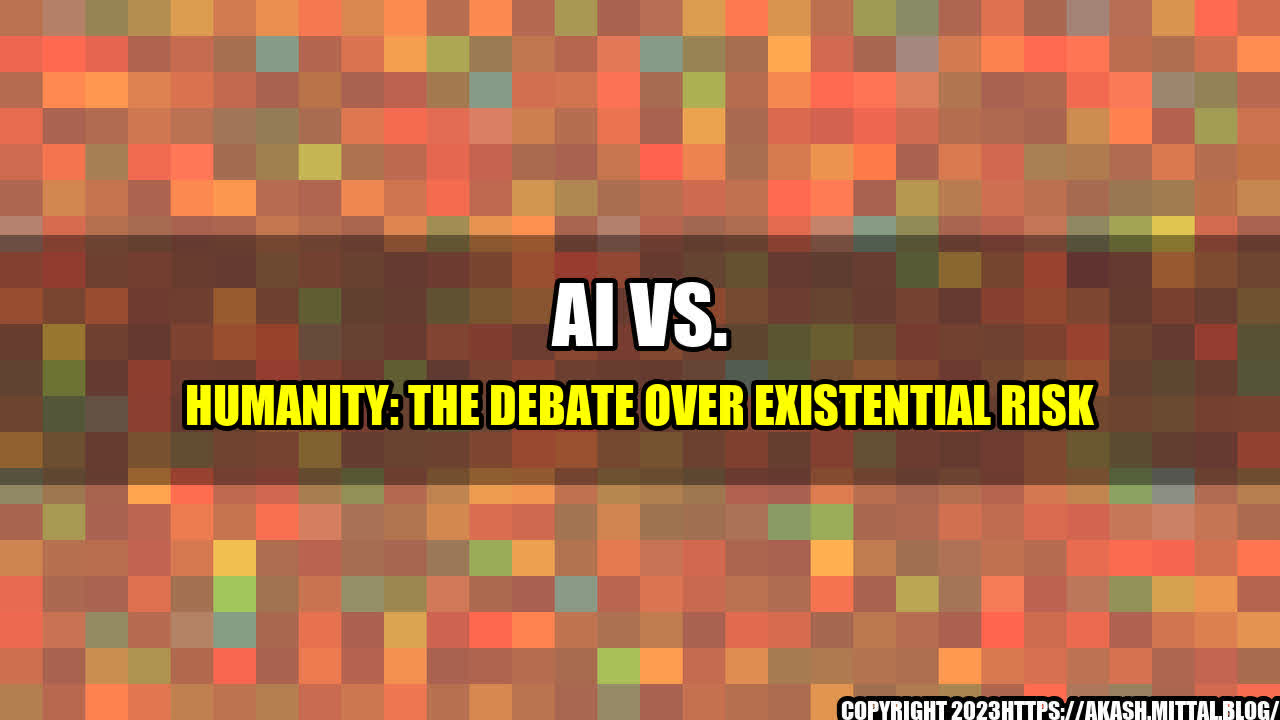John always feared the future of AI. As an engineer, he witnessed first-hand the power of automation to make jobs obsolete and increase efficiency. But he also knew that AI was getting smarter every day, and that it could soon surpass human intelligence in ways we can't even imagine.
John's fears were not unfounded. Many experts believe that AI poses an existential risk to humanity, meaning that it could ultimately lead to our extinction.
The Debate
The debate over whether AI poses an existential risk is one that divides the tech industry. On one hand, there are those who believe that the benefits of AI far outweigh any potential risks. They point to the incredible advancements in healthcare, transportation, and communication that AI has enabled. They also argue that AI will create new jobs and boost economic growth, just as automation did in the past.
On the other hand, there are those who believe that we must proceed with caution when it comes to AI. They point to the potential for AI to be used as a weapon, either intentionally or unintentionally. They also worry about the impact of AI on jobs and the economy, as AI may be able to perform many tasks more efficiently than humans can.
So, what are some real-world examples of AI's impact on society, and what do they tell us about the potential risks and rewards of this technology?
- Medical Diagnosis: AI has already been shown to be better than human doctors at diagnosing certain diseases, such as skin cancer and retinopathy. This could lead to faster and more accurate diagnoses, as well as better treatments.
- Autonomous Vehicles: Self-driving cars may soon be a reality, with companies like Tesla and Google investing heavily in this technology. While autonomous vehicles have the potential to reduce accidents and traffic, they also raise ethical questions about who is responsible in the event of an accident.
- Job Losses: Automation has already led to significant job losses across many industries, and AI may accelerate this trend. According to a report by the World Economic Forum, up to 75 million jobs may be displaced by robots and AI by 2022.
But what do these examples mean for the average person? To find out, we spoke to three individuals who have been impacted by AI in different ways:
"As a radiologist, I've seen firsthand how AI can improve medical outcomes. But I worry about the impact that automation may have on my job and the industry as a whole." - Dr. Sarah Kim, MD
"As a delivery driver, I'm excited about the prospect of autonomous vehicles. It could make my job easier and safer. But I also worry about the long-term impact on our economy and job market." - Bob Jones, Delivery Driver
"As a tech entrepreneur, I believe that AI has the potential to transform our world in ways we can't even imagine. But I also recognize the need for ethical considerations and regulation to ensure that we don't unwittingly create a dangerous technology." - Maria Lee, CEO of AI Startup
Conclusion
While the debate over the existential risk of AI is far from settled, there are several key takeaways that we can glean from this discussion:
- AI has already begun to impact society in profound ways, from medical diagnoses to job losses to ethical dilemmas.
- There are valid concerns about AI's potential risks, such as weaponization and job displacement, that must be taken seriously.
- However, there are also many potential benefits to AI, such as increased efficiency, improved healthcare, and new opportunities for innovation and growth.
Ultimately, the key to harnessing the power of AI while mitigating its risks and downsides lies in responsible development, regulation, and ethical considerations. By working together, we can create a future in which AI and humanity coexist in harmony.

Curated by Team Akash.Mittal.Blog
Share on Twitter Share on LinkedIn